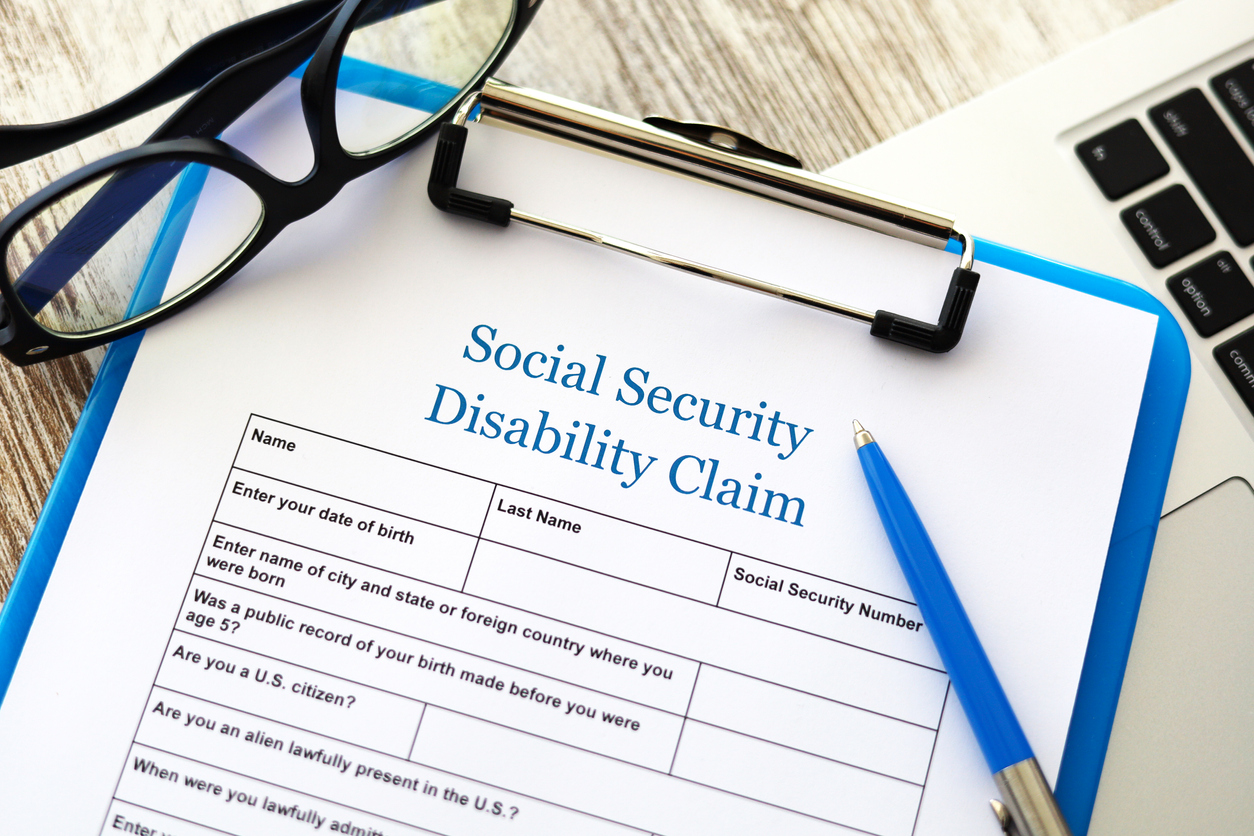Social Security Disability vs. Short-Term Disability
January 25, 2024 | Social Security Disability

If you are injured or unable to work, you might be entitled to Social Security Disability benefits. You could also be entitled to short-term disability benefits, depending on the facts and circumstances of your situation.
Our Harrisburg disability lawyers discuss each of these sources of benefits in this blog post, including the differences between Social Security disability and short-term disability.
Social Security Disability vs. Short-Term Disability in Pennsylvania
Short-term disability refers to a medical condition or illness that causes a temporary impairment that prevents you from working. A short-term disability insurance policy provides benefits for wage replacement. However, the amount paid by short-term disability usually does not replace all loss of income.
Pennsylvania does not require employers to provide short-term disability coverage for their employers. Therefore, unless you pay for a private disability policy or your employer provides short-term disability, these benefits may not be available.
Social Security disability is a government program. A person must have a qualifying disability that prevents them from working and meets the SSA’s definition of disability. Disability is defined as:
- Being unable to perform any substantial gainful activity;
- Because of a medically diagnosed physical or mental impairment;
- That is expected to last for a continuous period of at least one year or result in death.
There are two Social Security Disability programs. SSDI is for disabled workers who have earned sufficient income to qualify for the program. SSI is a program for low-income individuals who do not qualify for SSDI.
Social Security Disability is not intended to be short-term. The impairment must prevent you from working for at least one year. In general, Social Security Disability applies when a person has a long-term disability that prevents them from earning an income.
The length of your disability directly impacts whether Social Security Disability vs. short-term disability would be a better option for you. The definition of disability could also differ for Social Security disability vs. short-term disability.
Does Social Security Disability Impact Short-Term Disability Benefits and Vice Versa?
In some situations, you may qualify for both Social Security disability and short-term disability. In other cases, you may only qualify for one type of disability benefit. The facts and circumstances of your situation determine your eligibility for Social Security disability vs. short-term disability benefits.
If you qualify for disability benefits under both programs, you might receive both benefits. Disability benefits and Social Security SSDI benefits generally do not impact each other. You could receive both benefits if you are unable to work.
However, you may receive short-term disability payments for a few months while your SSDI application is being considered. In this context, your short-term benefits might end by the time the SSA approves your SSDI benefits.
Short-term benefits could impact eligibility for SSI benefits. You must meet eligibility requirements based on your income and resources. Generally, if a person has short-term disability coverage, they are generally ineligible to receive SSI benefits at the same time.
However, when the short-term disability benefits end, the person could then qualify for SSI benefits. Short-term disability benefits are only intended for about three months of missed time from work.
Social Security Disability is a long-term disability program. It does not pay benefits for short-term disabilities.
Applying for Social Security Disability vs. Short-Term Disability Benefits
Private insurance companies provide short-term disability benefits. Therefore, you must file a claim with the insurance provider for short-term disability benefits.
The terms and conditions of the insurance policy determine whether you qualify for short-term disability benefits. The insurance policy also determines how much you can receive in short-term disability payments and how long the payments continue.
On the other hand, Social Security disability is administered by the Social Security Administration. You must file an application for SSDI or SSI with the SSA. The SSA reviews your application and notifies you whether you qualify for either disability program.
You must meet the definition of disability to qualify for either SSDI or SSI. However, with SSDI, you must have worked in jobs covered by Social Security.
You must also have earned a minimum number of work credits. Most individuals need at least 40 work credits, with 20 credits earned during the past ten years. However, your age and date of disability determine the amount of work credits needed to qualify for SSDI.
Qualifying for SSI requires that you have little to no income or resources. Income is the amount of money you earn from employment. Resources refer to things you own.
Getting Help With a Social Security or Short-Term Disability Claim
You have the right to consult an attorney regarding your disability application and benefits. If you have questions or need help, you can set up a free consultation with a Harrisburg disability attorney to discuss your options.
If you’ve been injured in a social security disability, please contact Marzzacco Niven & Associates at the nearest location to schedule a free consultation today:
Harrisburg Law Office
945 East Park Drive, Suite 103 Harrisburg, PA 17111
(717) 231-1640
York Law Office
2550 Kingston Road, Suite 210A York, PA 17401
(717) 995-8998
Wyomissing Law Office
833 N. Park Road, Suite 103, Room A Wyomissing, PA 19610
(717) 388-2325
Chambersburg Law Office
79 St. Paul Drive, Suite 1 Chambersburg, PA 17201
(717) 388-2378
Carlisle Law Office
354 Alexander Springs Road Carlisle, PA 17015
(717) 995-8732
Carbondale Law Office
30 Lincoln Avenue, Suite 101 Carbondale, PA 18407
(717) 995-8810
Lancaster Law Office
2173 Embassy Drive, Ste 123, Lancaster Pa 17603
(717) 616-2954
Lebanon Law Office
937 Willow Street, Suite D Lebanon, PA 17042-1140
(717) 995-8963
